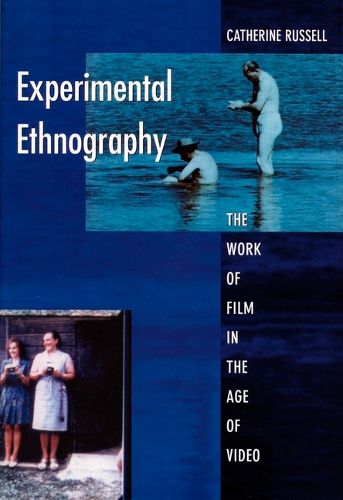Readings Newsletter
Become a Readings Member to make your shopping experience even easier.
Sign in or sign up for free!
You’re not far away from qualifying for FREE standard shipping within Australia
You’ve qualified for FREE standard shipping within Australia
The cart is loading…






Experimental film and ethnographic film have long been considered separate, autonomous practices on the margins of mainstream cinema. By exploring the interplay between the two forms, Catherine Russell throws new light on both the avant-garde and visual anthropology. Russell provides detailed analyses of more than 35 films and videos from the 1890s to the 1990s and discusses a wide range of film and videomakers, including Georges M. Elis, Maya Deren, Peter Kubelka, Ray Birdwhistell, Jean Rouch, Su Friedrich, Bill Viola, Kidlat Tahimik, Margaret Mead, Tracey Moffatt and Chantal Akerman. Combining cultural critique with aesthetic analysis, she explores the dynamics of historical interruption, recovery and reevalaution. As disciplinary boundaries dissolve, Russell contends, ethnography is a means of renewing the avant-gardism of experimental film, of mobilizing its play with langauge and form for historical ends. Ethnography likewise becomes an expansive term in which culture is represented from many different fragmented perspectives. Experimental Ethnography should appeal to visual anthropologists, as well as film scholars interested in experimental and documentary practices.
$9.00 standard shipping within Australia
FREE standard shipping within Australia for orders over $100.00
Express & International shipping calculated at checkout
Experimental film and ethnographic film have long been considered separate, autonomous practices on the margins of mainstream cinema. By exploring the interplay between the two forms, Catherine Russell throws new light on both the avant-garde and visual anthropology. Russell provides detailed analyses of more than 35 films and videos from the 1890s to the 1990s and discusses a wide range of film and videomakers, including Georges M. Elis, Maya Deren, Peter Kubelka, Ray Birdwhistell, Jean Rouch, Su Friedrich, Bill Viola, Kidlat Tahimik, Margaret Mead, Tracey Moffatt and Chantal Akerman. Combining cultural critique with aesthetic analysis, she explores the dynamics of historical interruption, recovery and reevalaution. As disciplinary boundaries dissolve, Russell contends, ethnography is a means of renewing the avant-gardism of experimental film, of mobilizing its play with langauge and form for historical ends. Ethnography likewise becomes an expansive term in which culture is represented from many different fragmented perspectives. Experimental Ethnography should appeal to visual anthropologists, as well as film scholars interested in experimental and documentary practices.